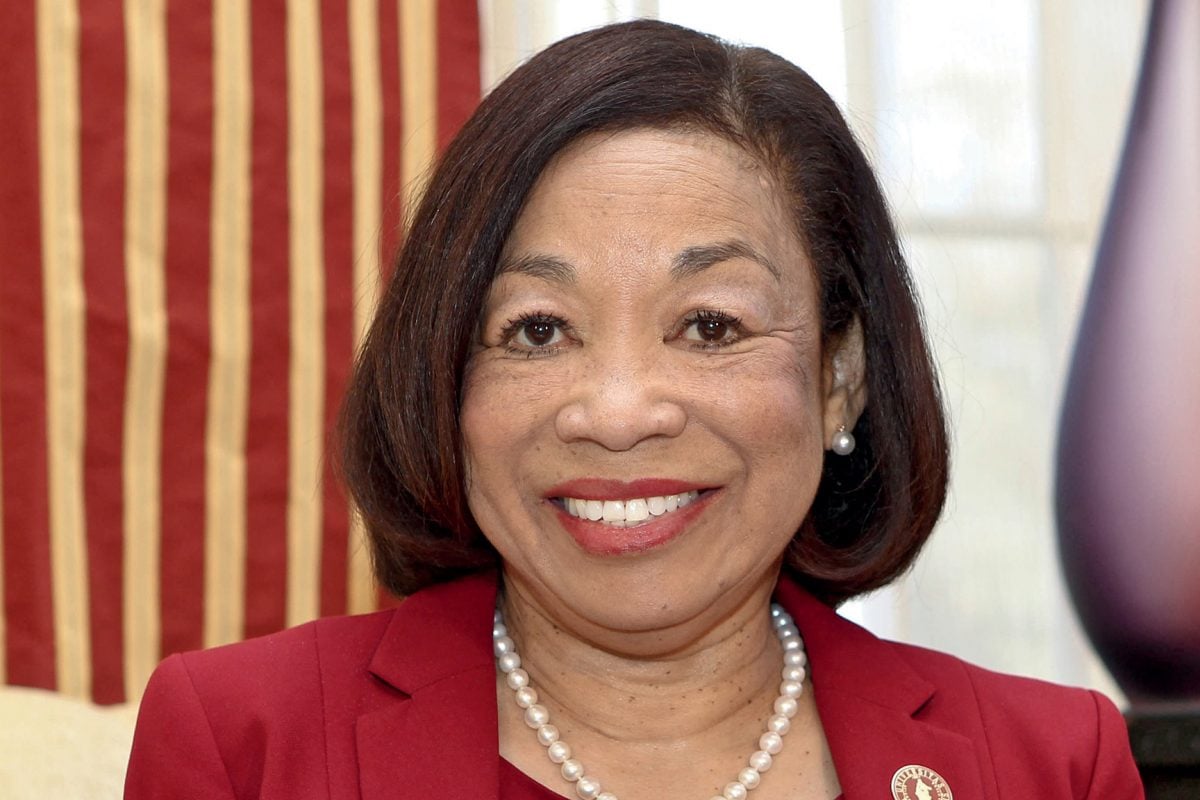Paving the way: Lily McNair
President Lily McNair talks becoming Tuskegee University’s first female president, successfully navigating COVID-19 and the continuous pursuit of excellence.
The first day of July in 2018 is a day that will go down in history for Tuskegee University and for women of color everywhere. On this scorching hot, Southern summer day, prestigious historically Black college and university (HBCU) Tuskegee University announced its very first female president, Lily McNair.

"When I got the news, I was ecstatic. I jumped up and down," Lily remembers. "I knew that this was a first, and I knew that it was historic." And she knew that accepting this position came with responsibilities beyond those typically associated with being president of a university. She would also be paving the way for future generations, inspiring women and girls to move beyond gender-based assumptions and barriers.
"As the news began to sink in, I reflected on what this meant for other women," she says. Thinking of all the ways she got to this memorable time in her career, Lily says the most important thing was never giving up.
"No matter what you set your sights on, you have to keep your eyes on the prize," she stresses. "You have to keep working hard and doing whatever must be done without compromising your integrity. And most of all, you can do it. As women, we can all support each other. We can arrive together."
With former US Vice President and 2020 Democratic presidential nominee Joe Biden choosing Kamala Harris – the first woman of color on a major party ticket – as his vice presidential candidate, the tides are changing.
And Lily couldn’t be more excited, especially for the smallest among us. "Little Brown, Black and Asian girls are waking up and saying, ‘That could be me,’" she beams. "And Kamala Harris went to an HBCU, which is great for all of us at HBCUs. She did it."
Tuskegee University was founded on 4 July 1881 in a one-room shanty in Tuskegee, Alabama. The prestigious private university has come a long way since then, but its mission remains the same – to successfully educate African American students to understand themselves and society against the backdrop of their total cultural heritage and promise of their future.
You have to keep working hard and doing whatever must be done without compromising your integrity. And most of all, you can do it.
"Tuskegee University offers a unique and distinctive academic and co-curricular experience unlike other schools," Lily says. "We build on our rich legacy and have the ability to move into innovative future trends. For example, the research that we’re doing in engineering, agriculture and sustainability is the research that will take us into the future."
For today, though, the university is homing in on efforts to keep its students and community members safe in light of the ongoing coronavirus pandemic. "We have faculty researchers who are developing tests kits that are used to test for COVID-19," she says.
"We have been able to donate these test kits to the Alabama Department of Public Health, so they can use them in communities that need them. "This is important to us because we’re in rural Alabama where there aren’t a lot of medical facilities – the closest hospitals are about 30 miles away. So by partnering with the community, we can help support their healthcare needs."
Healthcare access, or the lack thereof, is in the spotlight as COVID-19 continues to devastate cities and towns across the US. And it’s an issue Tuskegee University is all too familiar with.
"When people hear the words Tuskegee University, they think of Booker T Washington, George Washington Carver, the Tuskegee Airmen, and they think of the Tuskegee Syphilis Experiment," Lily explains. "That experiment really highlighted the racial inequity in health care and healthcare access, and COVID-19 is now doing the same.
"COVID-19 is shining a light on the longstanding, disproportionate lack of access to health care that African Americans have experienced during our time in America. This is an area of our researchers’ expertise, and it’s coming to the forefront now – we really need to focus on this."
While the university adjusts to the "new normal" with a mix of face-to-face and online classes, its commitment to providing an unparalleled academic experience for its students endures.
"The students are the lifeblood of the university," Lily says. "To be a part of their lives, to be a part of their growth as independent thinkers, as academic accelerators and as people who are going to go off and become leaders in the world is the most exciting thing to me.
"We are thrilled to announce U.S. News & World Report has ranked Tuskegee University fourth among the nation’s best HBCUs in its 2021 rankings – a move from 2020’s eighth spot," she continues.
"The new rankings reflect the University’s focus on student success and the enthusiastic support of our outstanding alumni.
"My vision is that the university will become one of the top regional universities in the Southeast. We can’t be confident and sit on our laurels, saying that we’ll just keep doing what we’re doing because our success is pretty good. No, we have to continue to get better and better and better."
Proudly supported by: